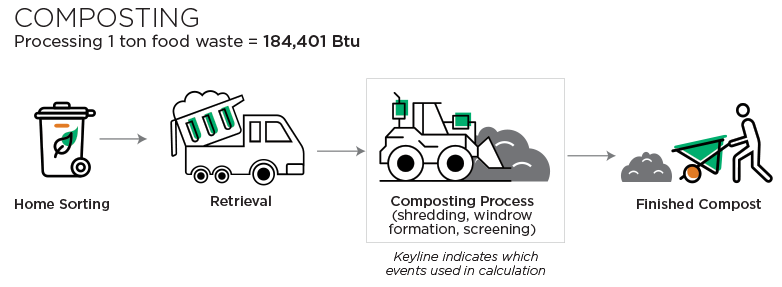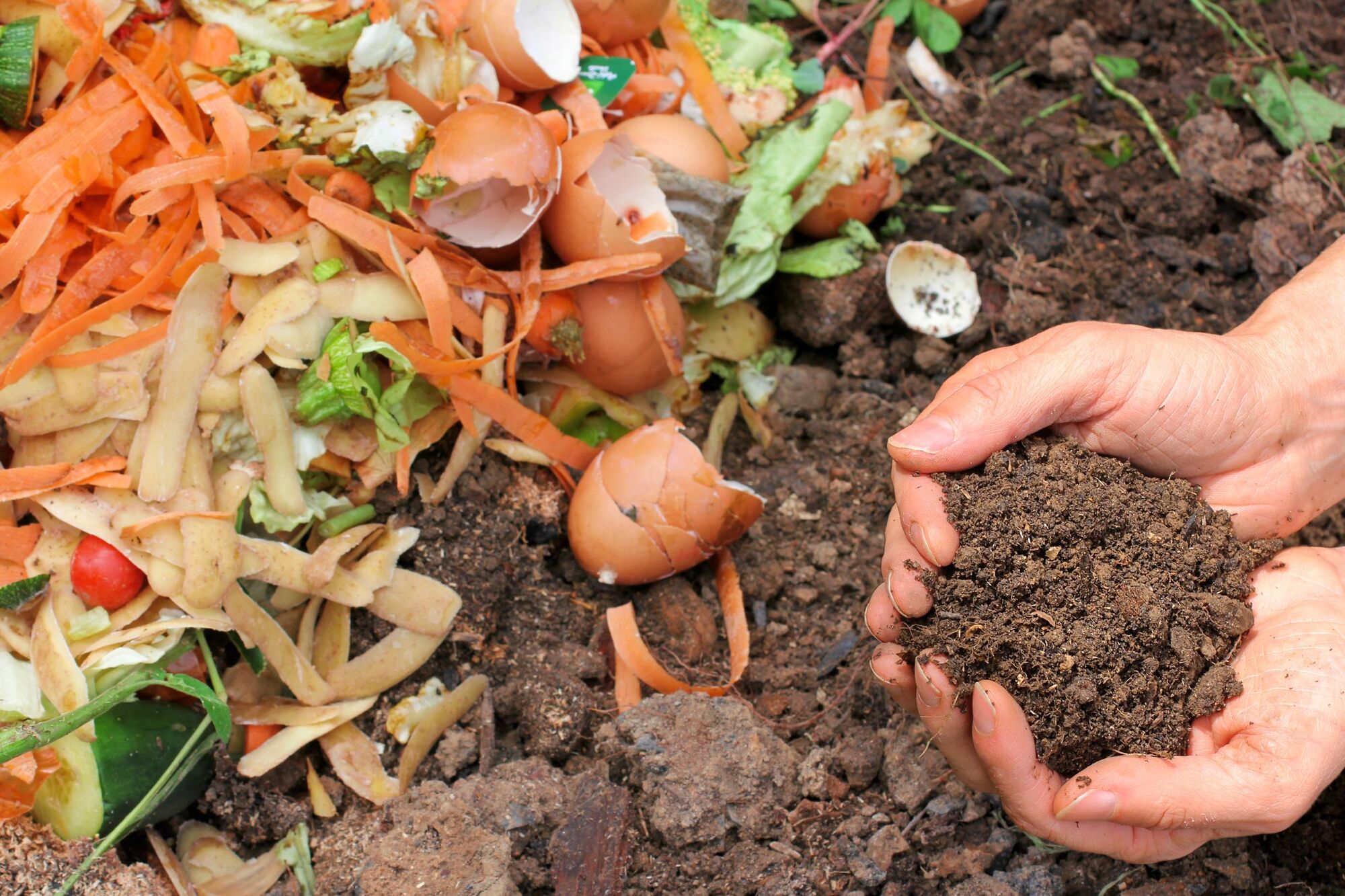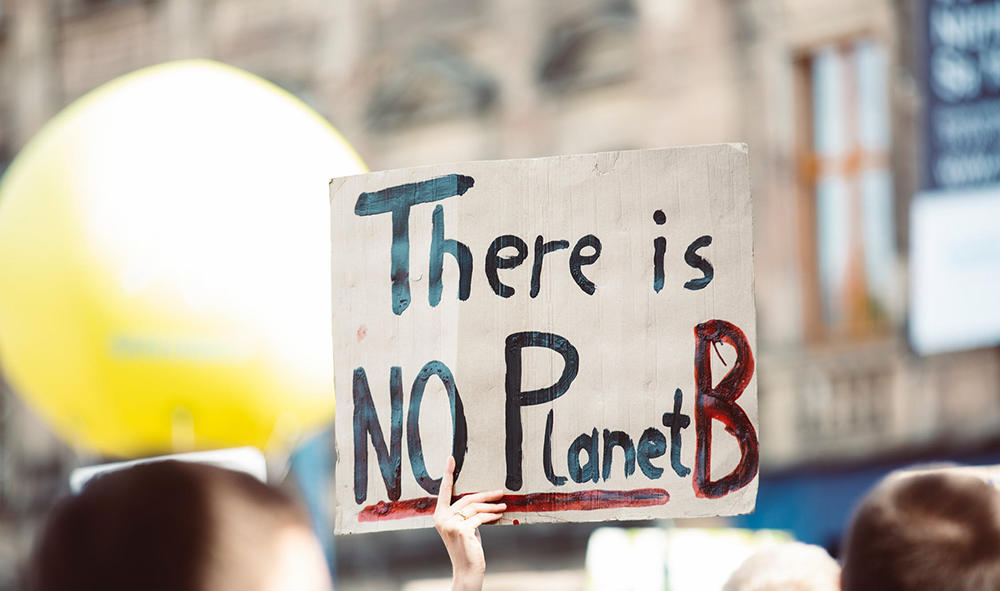World Centric Staff / 6 minute read
With the choice between petroleum-based plastics and compostable products, sometimes people wonder which is better for the environment. |
Key Takeaways:
|
With the choice between petroleum-based plastics and compostable products, sometimes people wonder which is better for the environment.
Petroleum-based foodservice ware may initially be cheaper than compostable counterparts, but the inherent flaw in the analysis of each product's cost is that it rarely reflects the true cost to the consumer. Petroleum and natural gas are both used to create the chemicals used in plastic. They are finite resources whose discovery, mining/extraction, purification, and shipment causes deterioration of ecosystems. The total costs of our endless conflicts in oil-rich regions in the Middle East, destruction of the oceanic environments due to deep-sea drilling, pollution of U.S. water supplies due to fracking for natural gas, and pipeline infrastructure across land and through the Great Lakes – takes an unknowable cost on our planet and communities.
Plastic production has dramatically increased from 1.3 million tonnes in 1950 to over 322 million tonnes in 2015. Yet, less than 9% of all plastic ever made has been recycled. What is staggering about these numbers is that newly revealed documents suggest that the petrochemical companies themselves were involved in the creation and marketing of recycling as a way to achieve consumer buy-in on plastics. Recycling may never have been meant to work, especially with the multitudes of plastic types on the market which make sorting difficult for consumers and at the materials recovery facility. Single-stream recycling makes it easier for consumers but can decrease recycling rates.
Plastic foodservice ware is frequently contaminated with food residue, which can make the content undesirable to sell or require more water and washing by the recycling facilities. Since recycling is a commodity market, brokers are trying to get the cleanest and purest materials. These food-laden materials may have been sold at lower rates in the past when China was accepting low-grade recycled materials. However, due to regulations in place in 2018 called the National Sword, other countries have followed suit in blocking low-grade recycling exports into their countries. From a lifecycle analysis perspective, composting takes less energy than recycling. In all, recycling takes 9.6 times more energy (see math below) than composting, which does not include transportation between steps. For recycling, this could include international ocean freight.
As the recycling market continues to present challenges and relies on national and global markets, composting presents a localized way to create a circular economy. The compost facility is a nearby source to create compost from the waste of single-use products. Composting bypasses the need for international shipping of waste products that contribute to the carbon footprint of recycling. Furthermore, food is not a contaminant for compostable products. More food is diverted from the landfill when compostable products are accepted. When food waste is landfilled it creates methane, a powerful greenhouse gas that is as much as 25 times more potent than carbon dioxide.
Petroleum-based foodservice ware may initially be cheaper than compostable counterparts, but the inherent flaw in the analysis of each product's cost is that it rarely reflects the true cost to the consumer. Petroleum and natural gas are both used to create the chemicals used in plastic. They are finite resources whose discovery, mining/extraction, purification, and shipment causes deterioration of ecosystems. The total costs of our endless conflicts in oil-rich regions in the Middle East, destruction of the oceanic environments due to deep-sea drilling, pollution of U.S. water supplies due to fracking for natural gas, and pipeline infrastructure across land and through the Great Lakes – takes an unknowable cost on our planet and communities.
Plastic production has dramatically increased from 1.3 million tonnes in 1950 to over 322 million tonnes in 2015. Yet, less than 9% of all plastic ever made has been recycled. What is staggering about these numbers is that newly revealed documents suggest that the petrochemical companies themselves were involved in the creation and marketing of recycling as a way to achieve consumer buy-in on plastics. Recycling may never have been meant to work, especially with the multitudes of plastic types on the market which make sorting difficult for consumers and at the materials recovery facility. Single-stream recycling makes it easier for consumers but can decrease recycling rates.
Plastic foodservice ware is frequently contaminated with food residue, which can make the content undesirable to sell or require more water and washing by the recycling facilities. Since recycling is a commodity market, brokers are trying to get the cleanest and purest materials. These food-laden materials may have been sold at lower rates in the past when China was accepting low-grade recycled materials. However, due to regulations in place in 2018 called the National Sword, other countries have followed suit in blocking low-grade recycling exports into their countries. From a lifecycle analysis perspective, composting takes less energy than recycling. In all, recycling takes 9.6 times more energy (see math below) than composting, which does not include transportation between steps. For recycling, this could include international ocean freight.
As the recycling market continues to present challenges and relies on national and global markets, composting presents a localized way to create a circular economy. The compost facility is a nearby source to create compost from the waste of single-use products. Composting bypasses the need for international shipping of waste products that contribute to the carbon footprint of recycling. Furthermore, food is not a contaminant for compostable products. More food is diverted from the landfill when compostable products are accepted. When food waste is landfilled it creates methane, a powerful greenhouse gas that is as much as 25 times more potent than carbon dioxide.
Assumptions:
1 liter of diesel = 36645 Btu
1 kw = 3412.14 Btu
1 liter of diesel = 36645 Btu
1 kw = 3412.14 Btu





